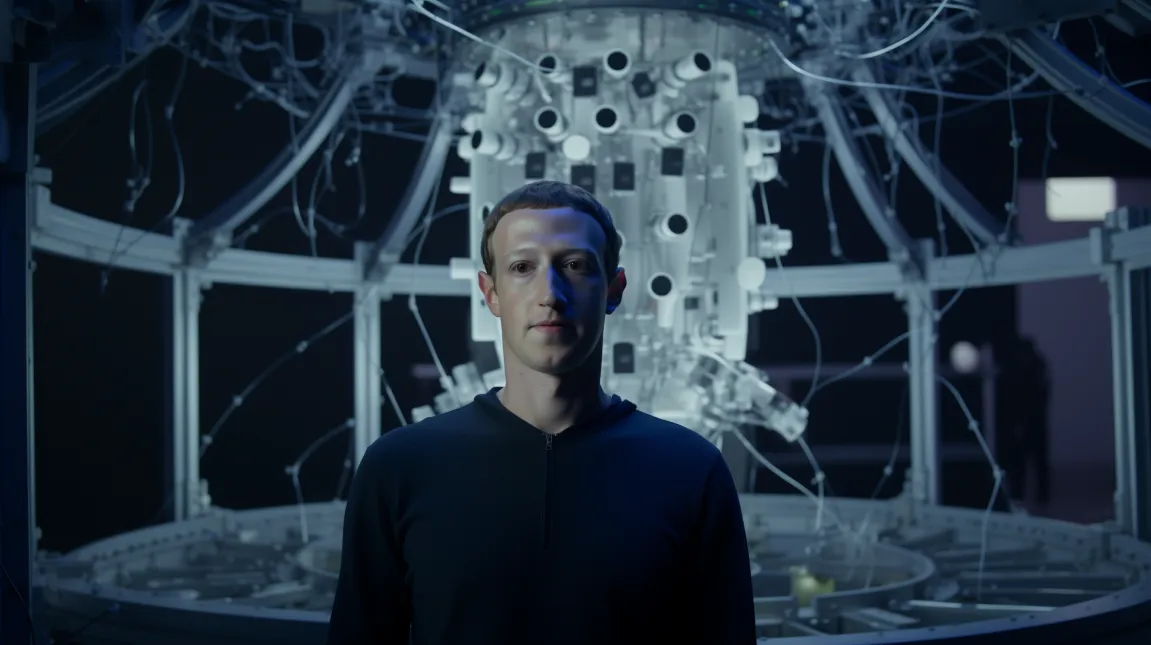Table of Contents
Mark Zuckerberg, the co-founder and CEO of Meta Platforms Inc., has always wanted to be seen as a visionary technologist. However, his reputation as a ruthless businessperson who copied or acquired his competitors often overshadowed his achievements. Even his own communications team struggled to brand him as a “builder” who could innovate on par with Bill Gates or Elon Musk.
That’s why Zuckerberg was thrilled when Sundar Pichai, the CEO of Google, praised him for a breakthrough by Meta’s artificial intelligence team in the summer of 2021. The two tech leaders were attending the Allen & Co. conference in the Idaho mountains, a private gathering of the rich and powerful.
There was just one catch: Zuckerberg had no clue what Pichai was talking about. He launched Meta’s AI research group, known as FAIR, in 2013, hiring Yann LeCun, one of the godfathers of AI, to lead it. But he had lost interest in its operations over the years, as he chased other big ideas to futureproof his company.
Meta’s Metaverse Misadventure
One of those ideas was the metaverse, a digital world where people could interact in immersive and realistic ways. Zuckerberg was so enamored with this concept that he changed the name of his company from Facebook to Meta in 2021, signaling a new direction for the social media giant.
But the metaverse turned out to be a colossal failure. Meta invested billions of dollars in developing hardware, software, and content for the metaverse, but it failed to attract mainstream users who found it too complex, expensive, or boring. Meta lost about $50 billion on the metaverse project and faced regulatory scrutiny, legal challenges, and public backlash over its privacy and safety practices.
The metaverse debacle also exposed the internal problems at Meta, which was celebrating its 20th anniversary in February 2022. The company’s core social media business was still huge and profitable, but its growth had slowed down significantly. Many employees felt frustrated by the stifling bureaucracy and the lack of innovation at Meta.
They also complained that the only way to advance their careers was to align themselves with Zuckerberg’s pet projects, which changed frequently. Some of the most talented workers left Meta for other opportunities, while others spoke anonymously to the media about their dissatisfaction.
Meta AI: The Next Frontier

One of those anonymous sources, a former Meta researcher, told Bloomberg Businessweek that Zuckerberg had bet on the wrong thing with the metaverse. “He knew something was coming, but I think he bet on the wrong thing,” the person said.
That something was artificial intelligence, the field that Pichai had complimented Zuckerberg on. After their conversation, Zuckerberg returned to Meta’s headquarters in Menlo Park, California, and asked to be updated on all the latest work by FAIR. He also started to educate himself more on AI, reading books and papers, and meeting with experts.
Zuckerberg soon realized that AI was the key to Meta’s future, and he made it his top priority. He believed that AI could not only improve Meta’s existing products and services, but also create new ones that could transform the way people communicate, learn, work, and play online.
One of the areas that Zuckerberg focused on was generative AI, a branch of AI that can produce original and realistic content, such as text, images, audio, and video. Meta launched ChatGPT, a generative AI model that could generate natural and engaging conversations, in 2022. It also developed Llama, an open-source generative AI model that could create high-quality images from text descriptions. Llama has been downloaded over 100 million times and has been used by artists, designers, and hobbyists around the world.
Meta claimed that it was among the leaders in AI and that its success with generative AI and open models spoke for itself. Pichai was not the only one who was impressed by FAIR’s work. Many people in the industry recognized Meta’s AI prowess and praised its contributions to the field.
Zuckerberg’s Meta AI Challenges
But Meta’s AI ambitions also faced many challenges, both internal and external. Some of the challenges were technical, such as scaling up AI models, ensuring their reliability and robustness, and dealing with their environmental and ethical impacts.
Some of the challenges were organizational, such as retaining and attracting AI talent, fostering a culture of innovation and collaboration, and balancing research and product development. Some of the challenges were societal, such as addressing the concerns and expectations of users, regulators, competitors, and critics, who were wary of Meta’s power and influence over the internet.
Meta had also learned from its past experiences that AI was not a magic bullet that could solve all its problems or a silver bullet that could kill all its enemies. AI was a double-edged sword that could be cut both ways, depending on how it was used and abused. Meta has faced many controversies and crises over its use of AI, such as its role in spreading misinformation, hate speech, and violence, its violation of privacy and human rights, and its manipulation of behavior and emotions.
Meta knew that it had to be more responsible and accountable for its AI actions and decisions and that it had to work with other stakeholders to ensure that AI was used for good, not evil. Meta also knew that it had to be more humble and realistic about its AI aspirations and limitations and that it had to be prepared for the unexpected and the unknown.
Meta had spent years lurching from one crisis to the next, and it knew how fast things could change. It was already bracing for another case of whiplash.